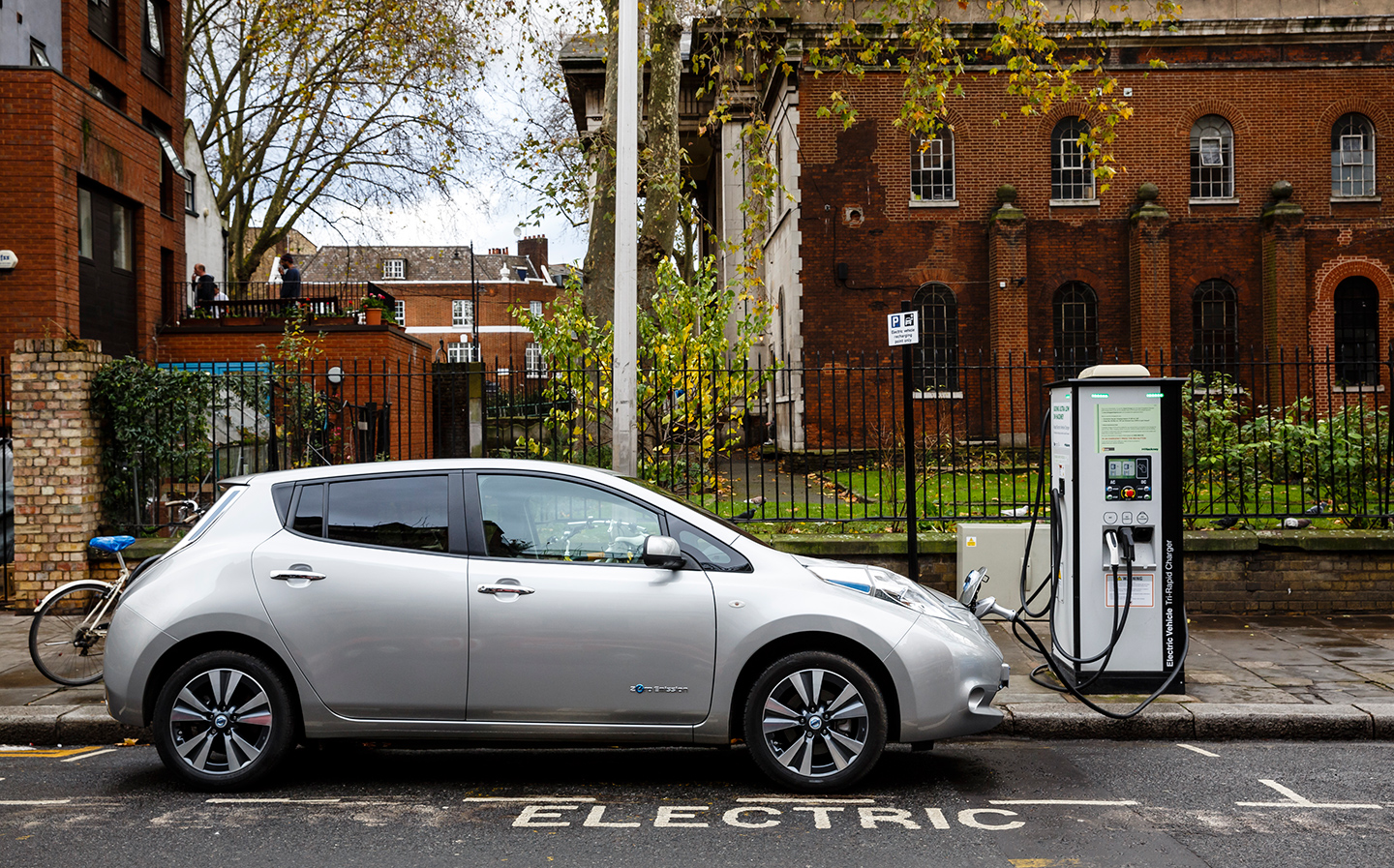Electric vehicle home chargers to switch off at peak times to avoid electricity blackouts
Law will not apply to public chargers
ELECTRIC CAR chargers may not function during peak hours to avoid overloading the national electricity grid, according to legislation announced by the Transport Secretary, Grant Shapps.
As of May 30 next year, any new home charger being installed must be a “smart” charger, connected to the internet and able to employ pre-sets that limit their ability to function from 8am to 11am and 4pm to 10pm. This is to avoid putting the electricity grid under stress at times of peak demand, potentially preventing blackouts.
The government will also be able to impose a “randomised delay” of 30 minutes on individual chargers in certain areas to prevent grid spikes at other times.
The Department for Transport has lodged a draft statutory instrument with the World Trade Organisation mandating that all home or workplace charging points “incorporate pre-set default charging hours which are outside peak hours.”
Public and rapid chargers on motorways and A-roads will be exempt, and users of home chargers will be able to override the pre-sets should they need to.
With a projected 14 million electric cars on the road by 2030, the transport secretary is concerned that drivers may get into the habit of arriving home between 5pm and 7pm, immediately plugging in their vehicles and placing the grid under undue strain.
Last week it was announced that electric vehicle chargers will be mandatory on all new build homes and offices, likely from 2022.
Charging at night better for wallets as well as the grid
The new legislation, rather than causing inconvenience, may not only reduces the chances of the over-demand on the grid, but could help drivers of electric vehicles save money.
Many energy providers offer an “Economy 7” tariff that offers electricity rates far below the 17p per kWh average cost during off-peak night hours, usually after midnight.
Some of the providers on the market offering off-peak tariffs that may be suitable for EV drivers include:
- EDF: Between midnight and 5am, EDF’s GoElectric tariff costs 4.5p/kWh
- British Gas: British Gas has tariffs aimed directly at electric vehicle drivers. Its current Electric Drivers Jul 2023 tariff offers rates of around 6p/kWh between midnight and 5am.
- Octopus: The Octopus Go tariff offers rates of 5p/kWh of electricity between 12.30am and 4.30am.
Electric vehicles may soon help “balance the load”
Another technology that may, in the future, help mitigate demand fluctuations is Vehicle-to-Grid (V2G) technology.
With the use of smart chargers, bi-directional V2G charging can send power from an EV battery back to the grid to help balance the system if, for instance, demand suddenly spikes.
With millions of vehicles projected to have on-board V2G capability, and the rollout of V2G-compatible smart chargers in the coming years, electric vehicles can essentially help fill gaps in power when demand is high and then draw power back when demand is extremely low (called “filling the trough” due to the wave-like highs and lows of traditional electricity demand through the day).
Many manufacturers are working on further developing the technology. Nissan’s Leaf, the Hyundai Ioniq 5, Kia EV6 and others currently on the market are capable, with more expected — from Volkswagen and Renault, for example — in the near future.
Unless technologies like smart chargers and bi-directional charging are widely rolled out soon, Britain’s electricity grid risks being stretched, according to some.
Leighton King, chief commercial officer at Indra, a charger manufacturer said: “If we don’t do something different and adopt these smarter ways, we’ll come home from school or work, plug in our chargers and the grid will collapse.”
However, the National Grid has repeatedly claimed that it will be able to cope. As part of its Future Energy Scenarios report, it predicted that electric cars may require the grid to deliver an additional 30% energy compared with existing peak levels, though smart chargers and other technologies are predicted to help balance the grid and meet any increase in demand.
It has been reported that a third less energy is required to light homes today compared with 1997 levels, simply due to the introduction of low energy lightbulbs.
Tweet to @ST_Driving Follow @ST_Driving
- After reading how EV chargers may switch off at peak load times to avoid electricity blackouts across the UK, you may be interested to read that all new build homes will be required to have electric vehicle chargers installed, probably from 2022
- Here are all the car makers’ electric car plans
- Read Will Dron’s review of the 2021 Hyundai Ioniq 5





